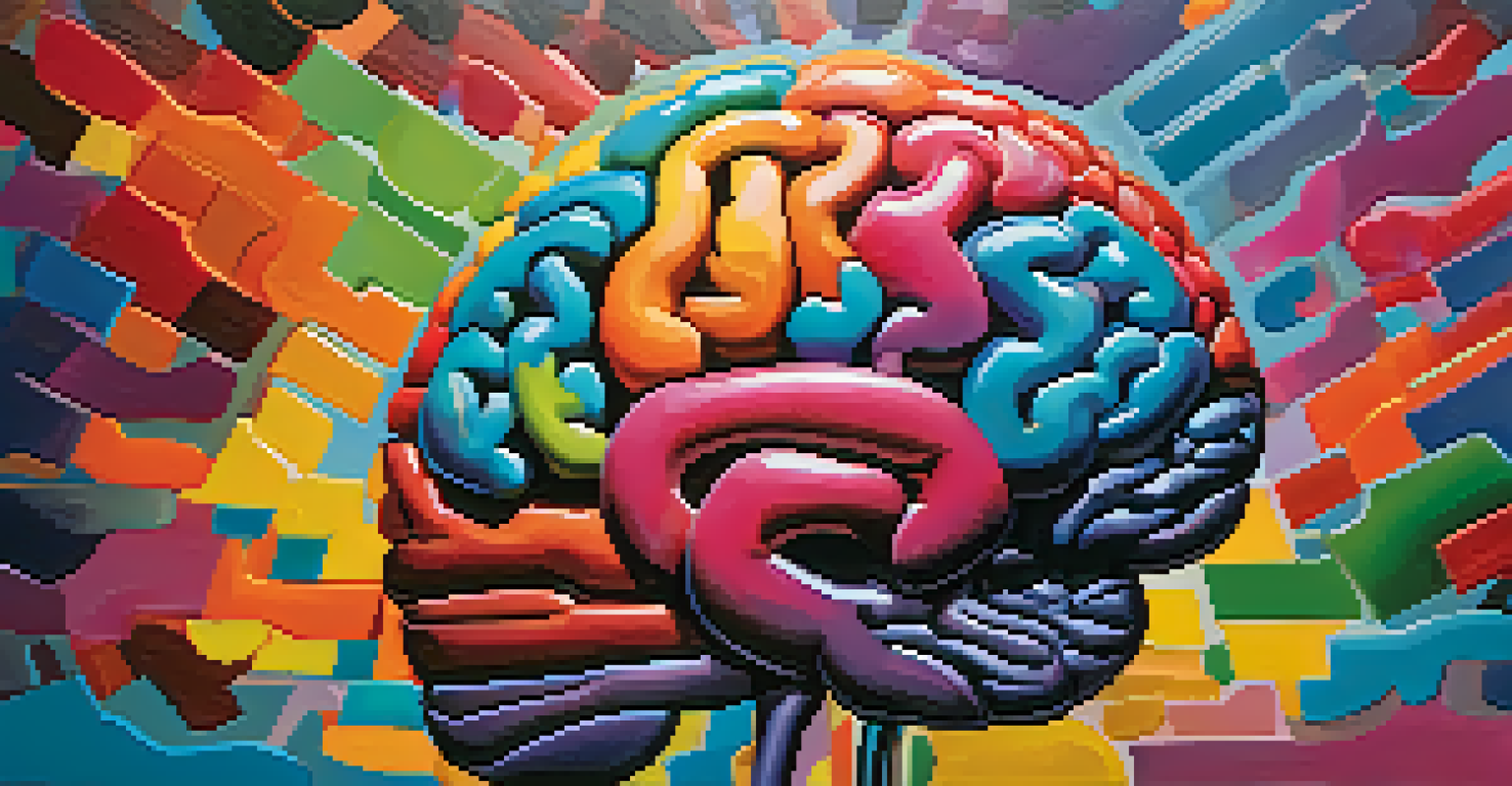The Role of Emotional Intelligence in Resilience Training

Understanding Emotional Intelligence and Resilience
Emotional intelligence (EI) refers to the ability to recognize, understand, and manage our own emotions while also being aware of others' feelings. This skill is crucial for navigating life's challenges and contributes significantly to our resilience—the capacity to bounce back from adversity. In resilience training, EI serves as the foundation for developing coping strategies and fostering a positive mindset.
Emotional intelligence is not the opposite of intelligence, it is not the triumph of heart over head – it is the unique intersection of both.
Resilience isn't just about surviving tough situations; it’s about thriving despite them. When individuals possess high emotional intelligence, they can better assess their emotional responses and those of others, allowing for more effective problem-solving and decision-making. This interaction between EI and resilience creates a powerful toolkit for overcoming difficulties.
For instance, a person with strong EI might face a setback at work but instead of feeling defeated, they analyze their emotions, seek feedback from colleagues, and find constructive ways to improve. This proactive approach is what sets resilient individuals apart and highlights the importance of integrating emotional intelligence into resilience training.
The Components of Emotional Intelligence
Emotional intelligence comprises four key components: self-awareness, self-management, social awareness, and relationship management. Self-awareness involves recognizing one's emotions and their impact on thoughts and behavior. This understanding forms the basis for self-management, where individuals learn to regulate their emotions and respond constructively to challenges.

Social awareness is the ability to empathize with others and understand their emotional states. This skill is vital in building connections and support networks, which are essential for resilience. Lastly, relationship management focuses on developing healthy interpersonal relationships and effective communication skills, fostering environments where individuals can thrive together.
Emotional Intelligence Drives Resilience
Emotional intelligence helps individuals manage their emotions and understand others, forming a strong foundation for resilience in the face of challenges.
When resilience training incorporates these elements of EI, participants learn not only to cope with their own emotions but also to understand and support others. This collective emotional awareness enhances group dynamics and creates a more robust support system during tough times.
The Impact of Emotional Intelligence on Stress Management
One of the most significant benefits of emotional intelligence is its role in stress management. High EI helps individuals identify stressors and their emotional responses to them. By recognizing these triggers early, they can implement coping strategies before stress becomes overwhelming.
The greatest weapon against stress is our ability to choose one thought over another.
For example, someone with strong EI might notice they feel anxious before a big presentation. Instead of succumbing to that anxiety, they can use techniques like deep breathing or visualization to manage their feelings effectively. This proactive approach not only minimizes stress but also enhances performance.
Furthermore, those with developed emotional intelligence are often better equipped to support others in managing stress. By fostering open communication and understanding, they create a supportive environment that encourages collective resilience, making it easier for everyone to navigate challenging situations together.
Building Empathy Through Emotional Intelligence
Empathy, a critical component of emotional intelligence, allows individuals to connect with others on a deeper level. In resilience training, building empathy helps participants understand different perspectives, which is essential during times of crisis. This understanding fosters compassion and strengthens relationships.
When individuals empathize with others, they can better support those who may be struggling. For example, a team member who recognizes a colleague's stress can offer assistance or simply lend an ear. This sense of community not only enhances individual resilience but also cultivates a culture of support within teams.
Empathy Enhances Team Support
Building empathy through emotional intelligence fosters a supportive environment, allowing team members to connect and assist each other during tough times.
Moreover, empathy encourages open dialogue about emotions and challenges. By normalizing these conversations, resilience training can create a safe space for participants to share their experiences, leading to collective growth and improved coping mechanisms.
How EI Enhances Problem-Solving Skills
Emotional intelligence plays a vital role in enhancing problem-solving skills, which are essential for resilience. Individuals with high EI tend to approach problems with a balanced mindset, allowing them to analyze situations without being overwhelmed by negative emotions. This clarity of thought is crucial when facing adversity.
For instance, when confronted with a setback, a person with strong EI can assess the situation, identify potential solutions, and weigh the pros and cons of each option. This rational approach not only leads to more effective solutions but also alleviates feelings of helplessness that can accompany stressful situations.
Additionally, strong problem-solving skills foster confidence. When individuals experience success in overcoming challenges, they reinforce their belief in their resilience. This positive feedback loop encourages them to tackle future obstacles with a proactive mindset, further integrating emotional intelligence into their resilience training.
The Role of Self-Regulation in Resilience Training
Self-regulation, a key aspect of emotional intelligence, is critical in resilience training. It involves managing one’s emotions, thoughts, and behaviors in different situations, particularly during stress. Individuals who master self-regulation can respond thoughtfully rather than react impulsively, leading to better outcomes.
For instance, during a crisis, a person who can self-regulate might take a moment to breathe and assess their feelings before reacting. This pause allows them to approach the situation with a clearer mindset, leading to more effective problem-solving and decision-making.
Self-Regulation Improves Outcomes
Mastering self-regulation enables individuals to respond thoughtfully to stress, leading to better problem-solving and decision-making in challenging situations.
Incorporating self-regulation techniques into resilience training, such as mindfulness and reflective practices, equips participants with tools to manage their emotions effectively. This skill not only enhances their resilience but also empowers them to support others in navigating their emotional responses.
Creating a Culture of Emotional Intelligence for Resilience
To maximize the benefits of emotional intelligence in resilience training, organizations should aim to create a culture that values EI. This involves promoting awareness of emotional skills and encouraging open discussions about feelings, challenges, and support systems. Such an environment fosters trust and collaboration among team members.
When organizations prioritize emotional intelligence, employees feel more supported and understood. This sense of belonging is crucial for resilience, as individuals are more likely to seek help during tough times when they know their emotions will be validated.

Furthermore, training programs that focus on developing emotional intelligence skills can lead to a more resilient workforce. By equipping individuals with the tools to understand and manage their emotions, organizations can create a proactive culture that not only survives challenges but thrives amidst them.